Description
Details
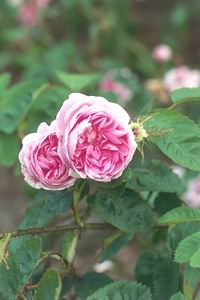 Plant/Part: Flowers/Petals (Source: Morocco, Turkey and France )
Plant/Part: Flowers/Petals (Source: Morocco, Turkey and France )
Latin Name: Rosa Centifolia , Rosa Damascena, Rosa Gallica
Family: Rosaceae
Extraction: Enfleurage/ solvent extraction
AROMA: A fresh forest fragrance.
PROPERTIES: Known as the Queen of oils. With ‘Feminine’ properties – soothing, tones, cleanses, uplifts the spirit and helps maintain self confidence. Excellent skincare oil, perfect for dry/mature, ageing or thread veined skin. Has been renowned throughout the centuries as having sensual and even aphrodisiac properties. Needs only a small amount to be affective. One of the oldest and best known of all essential oils. Used in all types of perfumes to lend beauty and depth to the aroma. A drop or two in a massage, facial, or bath oil creates a luxurious, soothing experience. The oil is used in skin creams, powders, and lotions. Excellent tonic for the womb, calming pre menstrual tension, promoting vagina) secretions and regulating the menstrual cycle. Helpful with sexual difficulties, particularly frigidity and impotence, soothing the underlying tension and stress by releasing the happy hormone dopamine. Seems to have a tonic action on the heart by activating sluggish blood circulation, relieving cardiac congestion and toning the capillaries. Balances and strengthens the stomach during emotional upsets and through its antiseptic and purging action, helps to clear the alimentary canal. Can to some extent relieves nausea, vomiting and constipation.
CHEMICAL CONSTITUENTS: Very complex with over 300 different chemical constituents but mainly Citronellol, Geraniol, Phenyl Ethanol, Stearopten, Cranic (Acid) , Citronneuol, Geraniol, Farnesol, Nerol (Alcohols), Eugenol (Phenol), Myrcene (Terpene) .
PRECAUTIONS: Warning: Avoid using during the first four months of pregnancy.
BLENDS: Bergamot, Chamomile, Clary Sage, Galbanum, Geranium, Jasmine, Lavender. Neroli, Orange, Palmarosa, Patchouli, Sandalwood.
Digestive: improves and regulates appetite, aids digestion, helps to relieve constipation, tones the stomach, liver and spleen, stimulates the flow of bile (cholagogue); used to treat liver congestion, cholecystitis, nausea, ulcers. its action is cleansing rather than stimulating.
Genito-Urinary: gently stimulates the production of menstrual blood (emmenagogue), tones and cleanses the uterus. used to treat uterine disorders, leucorrhoea, irregular menstruation, cramps.
Circulation: improves it, tones the heart and regulates its action, tones the capillaries, helps to expel toxins from the blood (depurative).
Respiratory: used to treat asthma, coughs, hay fever.
Skin/Hair: antiseptic, astringent, reduces inflammation, assists in the healing of wounds, stops bleeding. used to treat eczema, wrinkles. especially good for mature, dry or sensitive skin. rose water is used on the eyes to treat conjunctivitis.
Emotions/Mind: comforting and harmonizing, combats depression, stress, insomnia, headaches. soothes the nerves. v. a worwood recommends it for those who are afraid of letting go and afraid of love, as well as those who are self-destructive.
Other: aphrodisiac.
The rose was probably the first flower from which an essential oil was ever distilled, in tenth-century Persia. The great Arab physician,Avicenna, is credited with having discovered the method of distilling essential oil, possibly by chance during the course of alchemical experiments. The rose has considerable significance in the theoretical and metaphysical aspects of alchemy, with red and white roses each being thought appropriate to different stages of the alchemist’s work, and for this reason they were placed in retorts and heated with a variety of different materials in the attempt to transmute base metals into gold, producing rosewater and essential oil almost accidentally in the process.Whether or not Avicenna himself did make this discovery {and he was an alchemist, as well as a physician, poet, astronomer and mathematician) rosewater and oil were known in Arab speaking countries by the end of that century.
At the present day, the major production of essential oil of Rose is not by DISTILLATION (which yields only very small amounts of essential oil as a secondary product during the extraction of rosewater) but by the ENFLEURAGE method (Q.V.) The very high price of Rose oil is due to the huge quantity of rose petals needed to extract a tiny amount of oil, and the very high labour costs involved in this method of extraction. However the ‘attar’ or ‘otto of roses’ extracted in this way is so highly concentrated that only a very small amount is needed for each treatment. The attar is solid in the bottle at average room temperatures, only turning to a thick oil when the bottle is warmed in the hands. It is a deep reddish brown, and needs to be used sparingly, for its perfuming power is very great indeed.
 The rose has traditionally been called the ‘Queen of Flowers’ and in aromatherapy, Rose oil is often thought of as the queen among essential oils. Nicholas Culpeper, in his herbal, described the rose as being governed by Venus, and the area in which Rose oil is used in aromatherapy, in preference to all other oils, is in treating disorders of the female reproductive system. Many essential oils have a therapeutic affinity with a particular organ of the body, and it is not surprising that Rose, with its ‘feminine’ qualities, has a powerful effect on the uterus. It is cleansing, purifying, regulating and tonic, and is valuable where there is loss of uterine muscle tone; for example, in slight prolapse, (combined with suitable exercises such as some of the inverted postures of yoga), or for women who have a tendency to miscarry. However, women with serious gynaecological problems are less likely to seek help from an aromatherapist than those who have irregularities of the menstrual cycle, or who are tense, depressed or sad, and these are areas where oil of Rose is supremely valuable.
The rose has traditionally been called the ‘Queen of Flowers’ and in aromatherapy, Rose oil is often thought of as the queen among essential oils. Nicholas Culpeper, in his herbal, described the rose as being governed by Venus, and the area in which Rose oil is used in aromatherapy, in preference to all other oils, is in treating disorders of the female reproductive system. Many essential oils have a therapeutic affinity with a particular organ of the body, and it is not surprising that Rose, with its ‘feminine’ qualities, has a powerful effect on the uterus. It is cleansing, purifying, regulating and tonic, and is valuable where there is loss of uterine muscle tone; for example, in slight prolapse, (combined with suitable exercises such as some of the inverted postures of yoga), or for women who have a tendency to miscarry. However, women with serious gynaecological problems are less likely to seek help from an aromatherapist than those who have irregularities of the menstrual cycle, or who are tense, depressed or sad, and these are areas where oil of Rose is supremely valuable.
It can be used to regulate the menstrual cycle where this is irregular, and to reduce excessive loss. Rose is thought to aid conception, and is certainly helpful where it is difficult to predict ovulation dates because of an irregular cycle. Rose also, perhaps surprisingly, appears to increase the production of semen. Although the oil does not {as far as is yet known), contain plant equivalents of male or female hormones, it seems possible that it acts as a hormone precursor in the body, in much the same way as the B vitamins. However, the physical effects of Rose oil are perhaps less important to us in aromatherapy than its effects on the mental/ emotional level. It is a gentle but potent antidepressant, and as you might expect from the preceding paragraphs, and from its generally ‘feminine’ qualities, it is especially helpful where an emotional disturbance is linked to female sexuality or the reproductive cycle. It is one of the oils which are valuable in helping women suffering from post-natal depression, or depression following the breakdown of a relationship, particularly if the woman needing help is experiencing grief rather than anger at the situation.
Rose has long been renowned as an aphrodisiac, and the Romans used to scatter rose-petals on the bridal bed, a custom that has degenerated into throwing paper rose-petals at weddings. Given this, and the other properties discussed already, it is not surprising that oil of Rose is used to help women suffering from frigidity and to help with male impotence. Rose has a powerful tonic effect on the circulation, digestion and nervous system, but is generally less used for these purposes, as there are other essential oils which are equally effective and far less expensive. In the sphere of reproduction and sexuality, Rose is unique in its action and will always be the first choice of oil for treatment, in spite of its price.
It is also a very good oil for use in skincare. It can be used for all skintypes, but it is especially valuable for dry, sensitive or aging skins. It has a tonic and astringent effect on the capillaries just 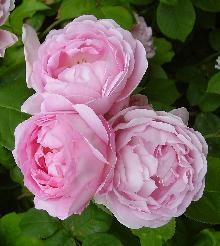 below the skin surface, which makes it useful for diminishing the redness caused by enlarged capillaries (often known as ‘thread-veins’) in the cheeks, though it must be said that treatment needs to be kept up every day for many weeks, or even months, before a real improvement can be expected. The delicious perfume of Rose obviously makes it popular in skin preparations, too, but unfortunately leads some commercial manufacturers to use synthetic rose perfumes in many bath and skincare products. When you are buying creams, lotions, perfumes, bath essences, etc., either for yourself or to use in treatments, it is unfortunately true that if the product is cheap, the perfume is almost certainly synthetic and totally lacking in any of the therapeutic properties of real Rose oil. It is not difficult to make your own creams, etc., and perfume them with just a drop or two of the concentrated attar. Although it may be expensive to buy initially, very little needs to be used to produce both the perfuming and the healing effects, so your oil will last a very long time.
below the skin surface, which makes it useful for diminishing the redness caused by enlarged capillaries (often known as ‘thread-veins’) in the cheeks, though it must be said that treatment needs to be kept up every day for many weeks, or even months, before a real improvement can be expected. The delicious perfume of Rose obviously makes it popular in skin preparations, too, but unfortunately leads some commercial manufacturers to use synthetic rose perfumes in many bath and skincare products. When you are buying creams, lotions, perfumes, bath essences, etc., either for yourself or to use in treatments, it is unfortunately true that if the product is cheap, the perfume is almost certainly synthetic and totally lacking in any of the therapeutic properties of real Rose oil. It is not difficult to make your own creams, etc., and perfume them with just a drop or two of the concentrated attar. Although it may be expensive to buy initially, very little needs to be used to produce both the perfuming and the healing effects, so your oil will last a very long time.
Rosewater is a much more affordable way of enjoying the rose perfume and its healing properties, especially in skincare. It is produced by distillation, as explained above, and good quality rosewater may be distilled three times to obtain an effective perfuming power (this is often sold as ‘triple rose water’). It is soothing, antiseptic and tonic to the skin, a pleasing light perfume, and is also an effective antiseptic for eye infections.
Three varieties of rose are used commercially for the production of oil of rose: Rosa Centifolia, Rosa Damascena and Rosa Gallica, and slight variations of aroma and colour will be found in the oils made from the different varieties, from a greenish-orange to a deep browny-red. The finest Rose oil, and the most costly, is the Bulgarian altar of roses, but excellent oil is also produced in the area around Grasse, the heart of the French perfume industry, and a slightly cheaper oil comes from North Africa. The French and Bulgarian oils are produced by enfleurage, while the North African is now generally obtained by the organic solvent method. It is considerably cheaper but less refined than the oils made according to the traditional method.

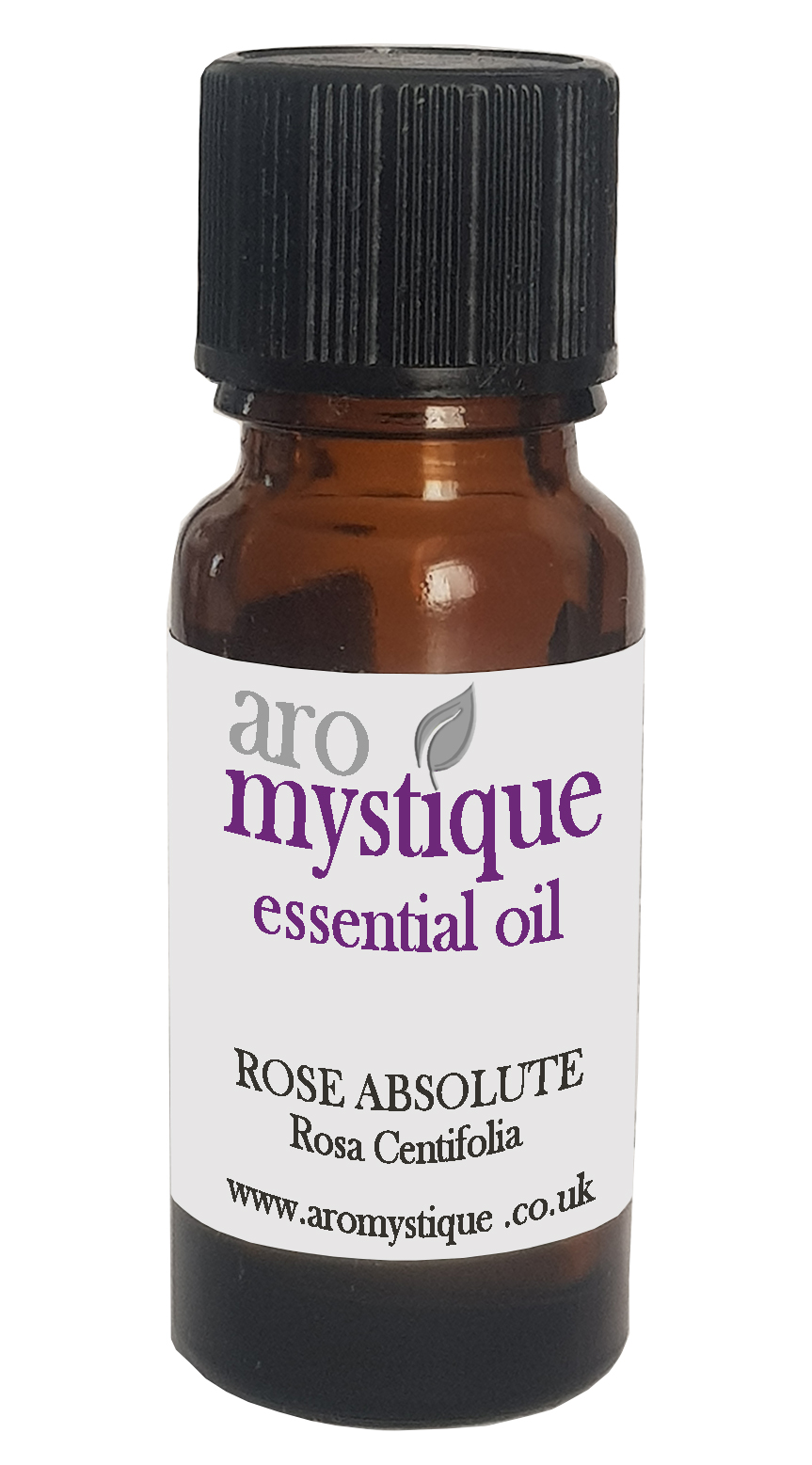

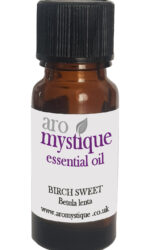
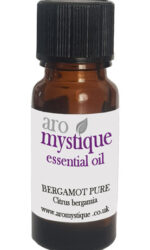
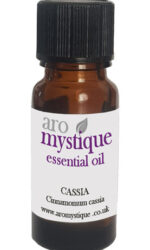
Reviews
There are no reviews yet.